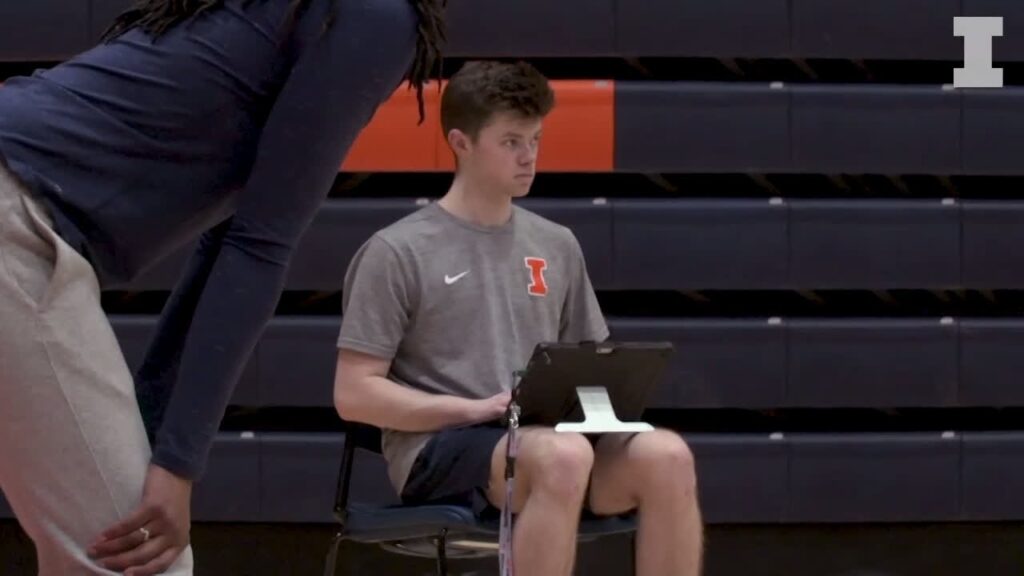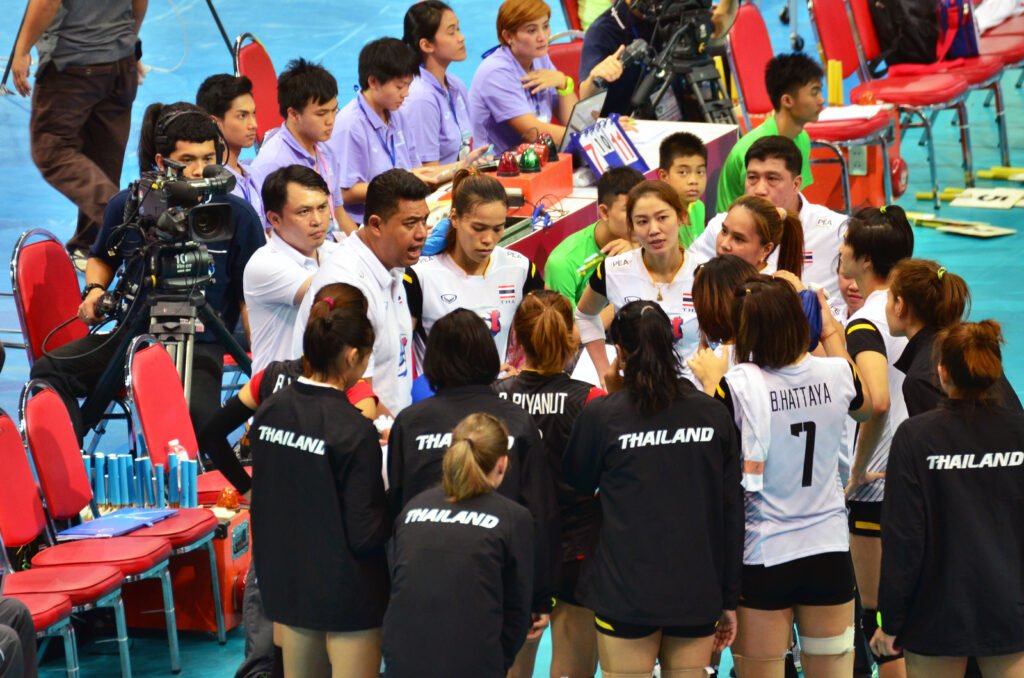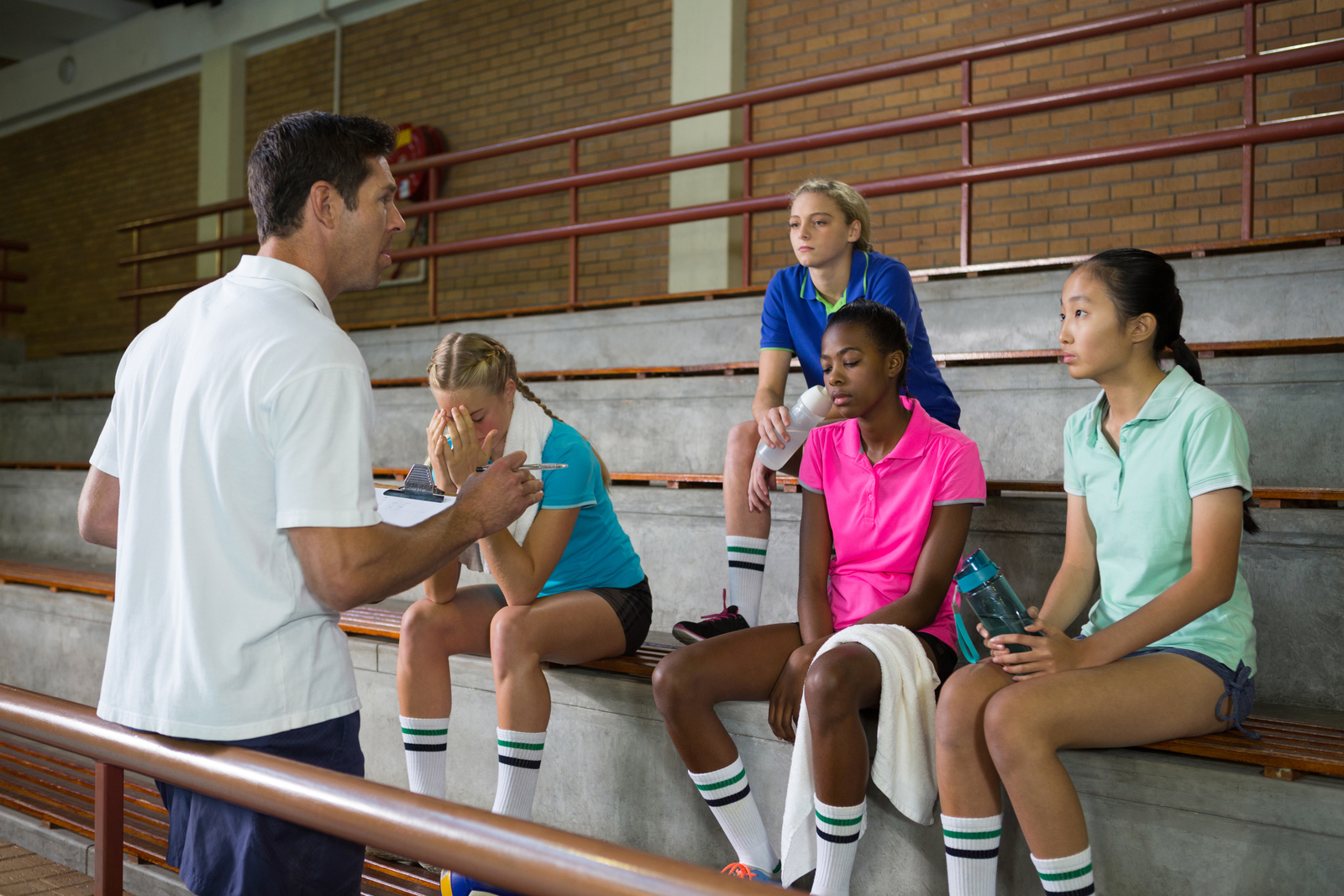A volleyball manager oversees team operations, coordinates logistics, and manages administrative tasks. They support athletes and coaches in achieving success.
Volleyball is an exhilarating team sport that requires effective management for optimal performance. As the backbone of the team, the volleyball manager plays a crucial role in ensuring smooth operations both on and off the court. This dynamic individual is the engine that keeps the team running, addressing logistics, managing administrative tasks, and supporting athletes and coaches.
From coordinating travel arrangements to organizing practice sessions, the volleyball manager is dedicated to creating an environment where athletes can thrive. Their strong organizational skills and attention to detail contribute significantly to the team’s success.
In this article, we will delve into what a volleyball manager does and their responsibilities, emphasizing their crucial role in cultivating a united and high-performing team.
What Does a Volleyball Manager Do?
A volleyball manager is pivotal in coordinating team activities, handling logistics, and ensuring smooth communication among team members. They oversee budgeting, scheduling, and equipment management while supporting players and coaches to optimize team performance.
Volleyball is an exciting sport that requires strong teamwork, skill, and strategic planning. While players take center stage on the court, there is another crucial role behind the scenes that contributes to the success of the team – the volleyball manager.

Role Of A Volleyball Manager:
Overseeing team logistics
A volleyball manager coordinates various team logistics, such as scheduling practices, arranging travel for away games, and ensuring all necessary equipment is available. They play a crucial role in ensuring the team operates smoothly and efficiently.
Managing team communication
Effective communication is key to any team’s success, and the volleyball manager plays a vital role in maintaining open lines of communication between the coaching staff, players, and other team personnel. They act as a liaison, relaying information and ensuring everyone is on the same page.
Assisting with player development
A volleyball manager supports the coaching staff in player development by organizing training sessions and assisting with individual player needs. They may also be responsible for maintaining player statistics and records, providing valuable information for analysis and improvement.
Supporting game-day operations
On game days, the volleyball manager provides invaluable assistance in various capacities. They may be responsible for setting up the court, coordinating officials, managing game-day logistics, and ensuring the smooth flow of the event.
Handling administrative tasks
From managing team budgets and fundraising efforts to overseeing team registrations and paperwork, a volleyball manager handles various administrative tasks to ensure the team’s overall success. They are often the backbone of the team, taking care of behind-the-scenes operations.
Fostering team morale
A positive team environment is essential for success, and the volleyball manager fosters team morale. They provide support, encouragement, and motivation to the players, helping to create a cohesive and united team atmosphere.
Responsibilities Of A Volleyball Manager:
- Coordinating team practices and game schedules
- Arranging travel and accommodations for away games
- Communicating important information to players and staff
- Assisting with player development through training sessions and individual needs
- Maintaining player statistics and records
- Managing game-day logistics and operations
- Handling administrative tasks such as budgeting and fundraising
- Fostering a positive team environment and supporting player morale
The role of a volleyball manager is multi-faceted and encompasses various responsibilities that contribute to the team’s overall success. Their organization, communication skills, and ability to handle administrative tasks are crucial in maintaining a smoothly running team. Their hard work and dedication help create an environment where players can focus on their game and achieve their full potential.

Differentiating Between A Coach And A Manager
A volleyball manager is responsible for overseeing the administrative aspects of a team, such as scheduling, budgeting, and coordinating logistics. They differ from coaches who focus on training and strategy.
Managing a volleyball team is a challenging task that requires a unique set of skills and responsibilities. While both a coach and a manager play crucial roles in the team’s success, their responsibilities and focus areas differ.
Manager’s Role Before The Season Starts
The volleyball manager plays a crucial role before the season starts, ensuring all logistics and preparations are in place. Their responsibilities contribute to a successful season, from arranging practice schedules to coordinating with team members.
Here are the key responsibilities and tasks a volleyball manager focuses on:
Establishing Team Goals And Objectives
- Collaborate with the coaching staff and team members to define clear and actionable goals for the upcoming season.
- Set specific targets related to performance, teamwork, and individual player development.
- Ensure everyone is aligned with the vision and objectives to foster a unified and motivated team.
Creating A Detailed Preseason Schedule
- Develop a comprehensive preseason schedule that outlines training sessions, scrimmages, and practice matches.
- Coordinate with coaches to optimize training sessions and ensure adequate time for skill development, conditioning, and team bonding activities.
- Communicate the preseason schedule to the team and make necessary adjustments based on unforeseen circumstances or changes.
Organizing Tryouts And Player Selection
- Plan and execute tryouts to evaluate potential players and determine the roster for the upcoming season.
- Implement fair and transparent selection criteria, considering skill level, commitment, attitude, and teamwork.
- Communicate the tryout process, expectations, and outcomes to all participants promptly and respectfully.
Managing Administrative Tasks
- Arrange necessary paperwork and permissions, such as medical forms, insurance waivers, and consent forms, to ensure the safety and compliance of all team members.
- Coordinate with other departments and organizational stakeholders, such as athletic trainers, facility managers, and transportation coordinators, to ensure smooth operations before the season begins.
- Maintain accurate records of player information, emergency contacts, and team registrations.
Communication And Team Building
- Foster open and effective communication channels among players, coaches, and parents to create a supportive and inclusive team environment.
- Plan team-building activities, such as preseason retreats or social events, to enhance camaraderie and encourage positive relationships within the team.
- Provide regular updates and information about the upcoming season, practices, and any changes or important announcements.
Equipment And Uniform Management
- Procure and distribute necessary equipment, uniforms, and team gear before the season begins.
- Ensure that all equipment, including balls, nets, and training aids, are in good condition and meet safety standards.
- Collaborate with the coaching staff to address equipment or uniform needs, ensuring that all players are equipped adequately for practices and matches.
Budget Planning And Fundraising:
- Work with the appropriate personnel to develop and manage the team’s budget, considering expenses related to travel, equipment, uniforms, and additional team activities.
- Explore fundraising opportunities and seek sponsorships to support the team’s financial needs throughout the season.
- Keep detailed records of expenses, income, and receipts to ensure accurate financial management.
Collaboration With Coaching Staff
- Collaborate closely with the coaching staff to develop training strategies, match tactics, and player development plans that align with the team’s goals.
- Support coaches by providing necessary resources, logistical assistance, and administrative support throughout the preseason preparations.
- Maintain open lines of communication to address any issues, concerns, or adjustments that arise during the planning phase.
Evaluation And Reflection
- Reflect on the preseason preparations, identify areas of improvement, and incorporate lessons learned into future planning.
- Evaluate the effectiveness of the preseason schedule, team objectives, and administrative processes to refine and enhance the team management approach.
- Seek feedback from coaches, players, and other stakeholders to continuously improve the team’s overall operation and performance.
The manager is vital in laying the groundwork for a successful volleyball season. By establishing team goals, organizing tryouts, managing administrative tasks, fostering communication, and collaborating with the coaching staff, the manager ensures the team is well-prepared and equipped for the challenges ahead.

Manager’s Role During The Volleyball Season
The role of a volleyball manager is crucial during the volleyball season. They handle team logistics, coordinate practice schedules, manage equipment, and support the coaching staff to ensure a successful season.
Here is a breakdown of the manager’s role during the volleyball season:
Match Arrangements And Logistics
- Scheduling matches and coordinating with the league organizers to ensure fixtures are in place.
- Handling travel arrangements, including booking transportation and accommodation for away games.
- Organizing practice sessions, securing facilities, and ensuring equipment availability.
Team Administration And Communication
- Acting as a liaison between coaches, players, and the administration.
- Managing attendance, player registrations, and medical information.
- Promptly communicate essential updates to the team, such as training schedules or game changes.
Budgeting And Fundraising
- Managing the team budget, including equipment, travel, and uniforms expenses.
- Liaising with sponsors and actively seeking fundraising opportunities to support the team financially.
- Ensuring compliance with financial regulations and maintaining accurate records of transactions.
Player Support And Well-Being
- Providing guidance and support to players, helping to address personal or performance-related issues.
- Assisting with injury prevention and recovery, coordinating with medical staff and therapists.
- Promoting team camaraderie and fostering a positive and inclusive team culture.
Game Day Duties
- Overseeing game day logistics, including set-up, team announcements, and coordination with officials.
- Assisting with equipment management, ensuring everything from uniforms to game balls are ready.
- Addressing any last-minute needs or emergencies that arise during matches.
Promotion And Media Relations
- Assisting with managing the team’s online presence, including social media accounts and website updates.
- Coordinating with media outlets to ensure accurate reporting and facilitating player interviews.
- Promoting team achievements and maintaining positive relationships with the media and community.
Administrative Tasks
- Managing paperwork, such as player contracts, insurance forms, and league documentation.
- Keeping track of team statistics and records.
- Handling any administrative tasks assigned by the coaching staff or administration.
A volleyball manager’s role during the season encompasses various responsibilities, from handling logistics and communication to supporting players and coaches. Their efforts contribute to the team’s overall success and smooth functioning throughout the volleyball season.

Off-Season Duties
During the off-season, a volleyball manager is responsible for various tasks that contribute to the team’s overall success. These duties include:
Scheduling and planning
The manager collaborates with the coaching staff to develop a comprehensive training schedule for the off-season. They also coordinate practice sessions, scrimmages, and to ensure the team stays in peak condition.
Recruitment and scouting
Identifying new talent is a crucial part of the off-season for a volleyball manager. They actively scout potential players and attend tournaments or games to assess their skills. Additionally, the manager maintains relationships with high school and club coaches to prioritize recruitment efforts.
Organizing tryouts
The manager arranges tryouts for prospective players to replenish the team’s roster. They handle logistics such as venue bookings, candidate communication, and evaluation procedures.
Budget management
In the off-season, the manager reviews the team’s budget and ensures that resources are allocated wisely. They analyze expenses, negotiate contracts with suppliers, and make financial decisions that optimize the team’s resources.
Evaluating performance
Assessing the team’s performance in the previous season is essential in identifying areas for improvement. The manager reviews game footage, statistics, and feedback from coaches and players to provide a comprehensive analysis report.
Updating documentation
The off-season allows managers to update various documents, including player contracts, medical forms, and travel arrangements. Accurate and up-to-date documentation is vital for smooth operations during the upcoming season.
Promotional activities
A volleyball manager actively promotes the team during the off-season, engaging with fans, sponsors, and media outlets. They organize events, marketing campaigns, and social media content to raise the team’s profile and revenue.
Coordinating equipment and apparel
The manager liaises with equipment suppliers and sponsors to ensure the team has the equipment and apparel for the upcoming season. This includes ordering new uniforms, arranging tryout equipment, and maintaining an inventory system.
Player development
The off-season provides an opportunity for individual player development. The manager works closely with the coaching staff and players to develop personalized training plans, recommend clinics or camps, and provide resources for skill enhancement.
Building community relationships
A volleyball manager represents the team and seeks to build strong relationships within the community. They coordinate community service events, organize meet-and-greet sessions, and foster partnerships to create a positive image for the team.
The off-season is crucial for volleyball managers as they strive to set the foundation for a successful upcoming season. Through careful planning, recruitment, and resource management, the manager contributes to the overall growth and development of the team.
Frequently Asked Questions
What Does A Volleyball Sports Manager Do?
A volleyball sports manager oversees and coordinates various aspects of volleyball teams and events.
Can A Volleyball Team Have Two Managers?
Yes, a volleyball team can have two managers.
What Are The Responsibilities Of A Volleyball Manager?
A volleyball manager oversees the team’s operations, coordinates practices and matches, handles logistics, manages team budgets, and ensures player welfare and discipline. They support coaches and players, handle administrative tasks, and ensure smooth team functioning.
What Skills Does A Volleyball Manager Need?
A volleyball manager needs strong organizational skills to coordinate team activities, excellent communication skills to interact with players, coaches, and other stakeholders, leadership abilities to motivate the team, and problem-solving skills to handle any challenges. Additionally, having a deep understanding of the sport and its rules is essential.
Conclusion
By now, you should have a clear understanding of the vital role that a volleyball manager plays. From handling logistics and scheduling to motivating and supporting the team, this position requires a unique mix of organizational skills and leadership qualities.
A volleyball manager is responsible for ensuring the smooth functioning of the team both on and off the court. They are the behind-the-scenes heroes who work tirelessly to ensure that everything runs smoothly so that the players can focus on what they do best: playing volleyball.



